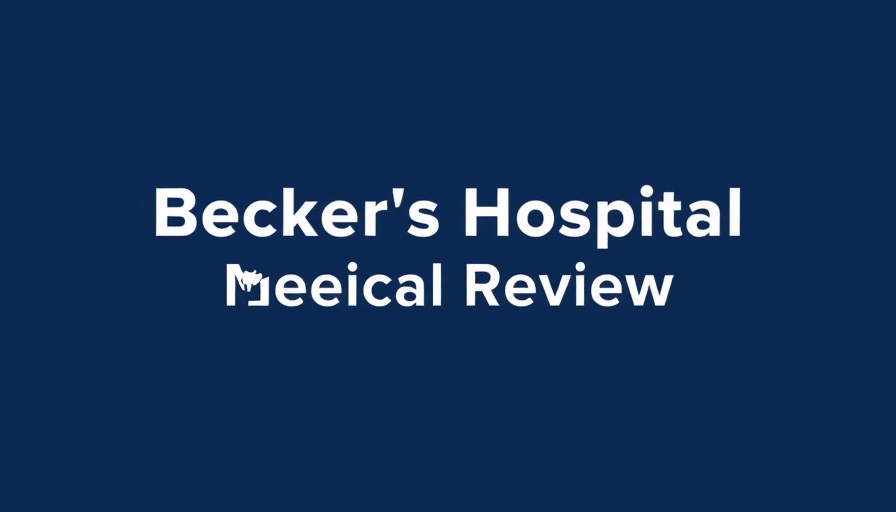
An Unprecedented Approach to Medical Education
This spring, as the NYU Grossman School of Medicine commemorates the graduation of its medical students, the highlight isn't just their hard work and dedication—it’s a groundbreaking model that is reshaping the future of medical education. The tuition-free, three-year program is a significant leap forward in alleviating the crippling debt burden that many medical students face today. Too often, aspiring doctors exit medical school laden with over $200,000 in debt, which can affect their career choices and mental health. At NYU, the focus is revitalized—students can graduate without the weight of overwhelming financial stresses, allowing them to concentrate on what truly matters: providing excellent care to their future patients.
Why This Model Matters
The implications of NYU's initiative are widespread, resonating with aspiring medical students and current professionals alike. Reducing financial barriers to medical education not only encourages diversity within the profession but also ensures that patients receive the best possible care from doctors who understand their unique backgrounds and struggles. As healthcare systems evolve to meet the needs of increasingly diverse populations, this inclusivity becomes paramount. By allowing students to graduate without fearing crippling debt, NYU is making a strong statement: all aspiring doctors, regardless of their financial background, deserve access to quality medical education.
Impact on Future Generations of Doctors
Imagine a world where the best and brightest students from every socioeconomic background can pursue their medical aspirations without fear of debt. That vision is becoming a reality at NYU Grossman School of Medicine. Innovative programs like the three-year tuition-free pathway mean that students can enter the workforce sooner, armed with the knowledge and skills necessary to provide equitable healthcare. This model could inspire other medical schools to reevaluate their funding structures and curriculum lengths, ultimately promoting healthcare systems that prioritize patient care and mental wellness over financial gain.
Broadening Horizons
This initiative at NYU isn't just a win for prospective students; it’s a bold step in reshaping the healthcare landscape. The American healthcare system desperately needs more physicians, especially in underserved areas. By adopting a tuition-free model, NYU is contributing to a larger conversation about how to ensure the next generation of doctors can emerge without the baggage of debt. This approach presents a powerful alternative: focusing on patient care instead of preserving the financial burdens of medical education.
Real-World Anecdotes from Graduates
Current students and graduates of the NYU program poignantly illustrate the transformative power of this approach. Many have shared their appreciation for being able to pursue their passions without the financial strain that often accompanies medical training. Their stories echo a common theme: a deep commitment to health equity and community care, reinvigorated by the possibility of focusing on medicine rather than financial survival. This kind of change can inspire a whole new generation of providers who are committed to serving their communities.
Paving the Way for Future Innovations
NYU’s model isn’t just a standalone example; it could serve as a catalyst for similar initiatives across the nation. There’s a growing trend among medical schools to explore innovative funding solutions, including partnerships that leverage technology and community resources to reduce costs. Other institutions following suit could spark a national movement towards rethinking how medical education is funded, with potential implications for healthcare systems globally. The future of medical education is changing, and NYU Grossman School of Medicine is leading the way.
Call to Action: Engaging the Community for Change
As we reflect on the incredible strides made by initiatives like the NYU Grossman School of Medicine's tuition-free program, it’s essential to continue this dialogue in our own communities. Advocating for educational reforms that prioritize inclusivity and accessibility will foster a healthier, more equitable healthcare system for all. Let's encourage local medical institutions to explore similar pathways and share in the journey of transforming medical education today. Your voice matters in this vital conversation!
 Add Row
Add Row  Add
Add 




 Add Row
Add Row  Add
Add 

Write A Comment